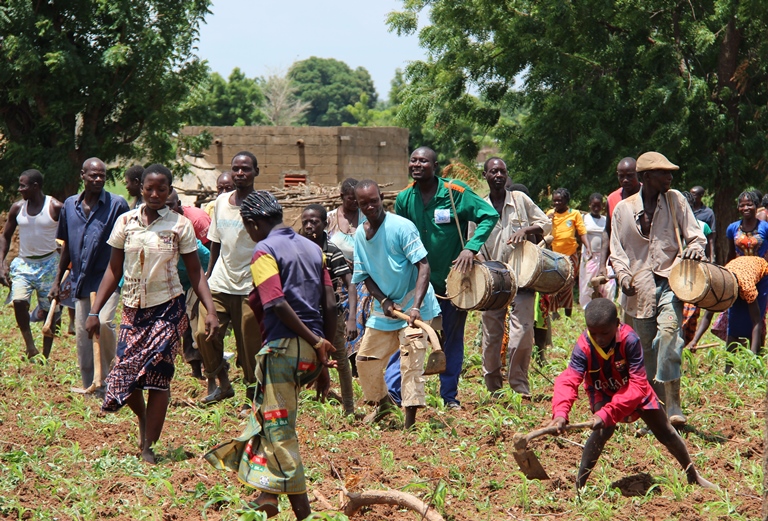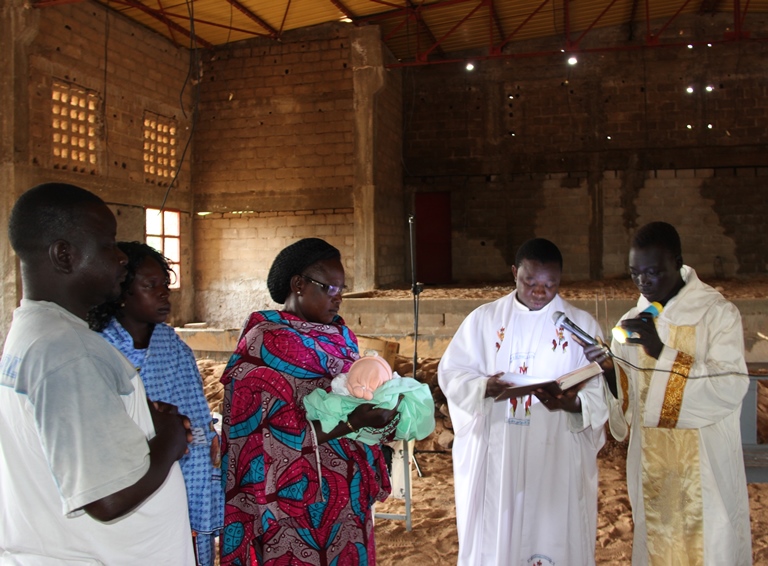|
Terror in Burkina Faso: 'No creed can justify violence'
Tuesday, August 22, 2017
"Rather than radicalization, what is actually taking place is a slow process of Arabization among the younger generation."
Rafael D’Aquí, who
oversees projects in francophone Africa for international papal charity Aid to
the Church in Need (ACN), recently returned from a fact-finding mission to Burkina
Faso. The country was in the headlines following the Aug. 13, 2017 terror
attack by suspected Islamist extremists on a restaurant in the capital city of
Ouagadougou, which killed 17 people. Thus far, though the influence in Burkina
Faso of Saudi Arabia and other Arab countries has been growing,
Muslim-Christian relations have been peaceful in the country. Burkina Faso is one of
the poorest countries in the world with an extremely low index of human
development, which translates into low life expectancy and a low level of formal
education.
By Maria
Lozano
What do
we know about the Aug. 13 attackers?
Thus far, no specific group has claimed responsibility for
the attack. The president of the bishops’ conference of Burkina Faso and Niger,
Archbishop Paul Ouedraogo of Bobo-Dioulasso denounced
the attack in the strongest terms, saying “no creed can justify violence.”
Though the country
has seen few Islamist terror attacks, there was the Jan. 16, 2016 attack on a
hotel in the capital city, which killed 30.
That attack was attributed to Al Qaeda in the Islamic
Maghreb (AQIM); it was aimed, just like the recent act of terror, at
foreigners. Nonetheless, I do not believe that these terrible events have
changed the good relations between local Christians and Muslims. Local Muslims
have rejected extremism.
How has the Christian
community reacted?
Auxiliary Bishop Leopold Ouedraogo of Ouagadougou spoke
movingly just days after the attack, on the Feast of the Assumption at Yagma,
the largest Marian shrine in the country. Thousands of people had gathered
there. Bishop Leopold expressed his joy at seeing that so many people were not
afraid of “those who can kill the body, but who cannot kill the soul.” He
declared: “Some people might think that the events of August 13th might
have discouraged us, but we are here because ‘if the Lord does not build up the
house, in vain do the builders labor.’ And if the Lord is with us, we need fear
nothing. To the families of the victims we send a message of compassion and
sympathy. We suffer with them and hope that through our prayers the Lord, who
is a just Judge, will take them into his eternal Kingdom, because they have not
deserved this.”

More than 60 percent of the population is Muslim. Is there not a danger
of radicalization?
Rather than radicalization, what is actually taking place is
a slow process of Arabization among the younger generation. There are many
opportunities offered by the countries of the Arabian Peninsula, notably in the
form of scholarships and employment. In a country in which approx. 60% of the population is Muslim, the influence
of the Islamic countries is considerable. There are NGOs here from Qatar,
Kuwait and other countries of the region which aim to advance social
development—but along with that they are exporting their own ideology and
interpretation of the Koran. These organizations are prepared to dig wells, build
mosques and help the poor—but they focus their aid exclusively on Muslims. By
contrast, the Church, even as a small minority in the country’s north, provides
healthcare and education to all, not just Christians. It pays particular
attention to girls.
Why for the girls?
Sadly, there is still the practice of marrying girls off at
a very young age and women are subject to violence. Tackling this problem is a
matter of education. The Church is aims to protect young girls by offering them
the opportunity of studying in a boarding school setting. The Church in Burkina
Faso is also striving to draw the attention of society to the condition of
women.
What experience moved
you in a particular way?
I visited villages in the Diocese of Tenkodogo, where we are supporting the
construction of small village chapels as well as a church. In one of the
villages, I was struck by close to a 100 people working the field next to the church
still under construction. The local bishop explained: “That is the catechist’s
field; the people love their catechist so much that they are getting together
to prepare his field for sowing.” The village chief also came; although he is
not a Catholic, he comes every day to check on progress, saying that “when the
Church comes here, then development also comes for the people.”

The Church in Burkina Faso has four principal concerns: the family
apostolate; the formation of catechists and educators; the life of prayer and
contemplation; and the support of religious congregations. The family
apostolate is crucial, because, in a poor country like this, what so many
international organizations are attempting to do is to impose their own agenda,
which runs contrary to the culture of life. It is important to form families
according to the mind of the Gospel—open to life, responsible for the education
of their children—and to create an environment in which young people can learn
the true meaning and context of sexuality.
Also, the presence of priests and religious among the people
is a precious treasure, and for this reason we help them to acquire a solid
formation, so that they can carry out their ministry well. At the same time we
cannot forget that in the midst of so much poverty it is also necessary to
create spaces of prayer, or simply of spiritual repose, where the people and
the missionaries can be given an opportunity to “recharge their spiritual
batteries” for their day-to-day duties.
In 2016, ACN supported
the Church in Burkina Faso with grants totaling close to $800,000.
Working the field; Baptism; ACN photos
|
|
|